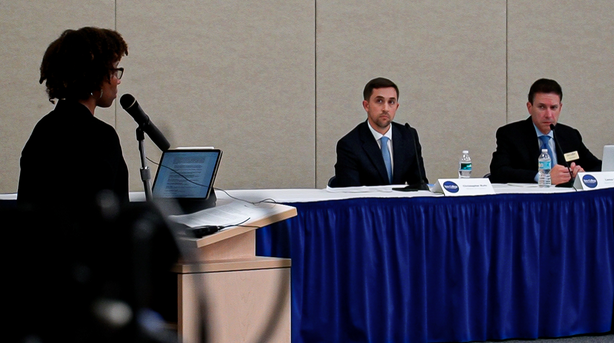New College of Florida Board of Trustees (BOT) member Christopher Rufo and New College of Florida are currently being sued in a joint lawsuit filed on Feb. 21 by the Florida Center for Government Accountability (FLCGA), a nonprofit transparency organization. FLCGA’s suit includes a request for communications that took place on Rufo’s private cellphone during a 17-day period between Jan. 6 and Jan. 23. The nonprofit has a self-described mission of achieving government transparency through “aggressive public records investigations and well-sourced quality reporting.”
Records pulled from this roughly two-week slot in January from Rufo’s personal device allegedly have the potential to reveal information on conservative plans to transform higher education. There were also previously circulated speculations that trustees violated Sunshine Law to create a plan for Richard Corcoran’s installment as Interim President. The logs might clarify some issues, or they might reveal nothing at all. The nonprofit wants to find out, and has claimed it may have a legal right to those records because Rufo didn’t have an official email account or an agency-issued cell phone immediately after his appointment as a public official on Jan. 6.
FLCGA initially sent a request for the records to New College on Jan. 23 in accordance with state law and the Florida Public Records Act. The FLCGA’s complaint alleges that New College confirmed having received the request on Feb. 1, but did not produce any of the requested records. The Feb. 21 lawsuit also alleges that New College’s failure to fulfill, deny or inquire further into its Jan. 23 records request constitutes a violation of state law and accuses New College and Rufo of withholding public records.
According to the lawsuit, taking swift legal action against the school is of vital importance. This is because state law allows for the disposition of records sought by interested parties 30 days after an information request is made if a local government agency claims that the requested documents aren’t subject to public disclosure. FLCGA moved to issue the lawsuit just before the 30-day window closed, which would prevent a local government agency from relocating the records and potentially delaying their release or blocking access to them.
FLCGA is attempting to uncover potentially revealing information about New College’s new leadership, an issue that is quickly gaining a national spotlight as states across the country propose similar education reforms. Rufo has been among the most visible forerunners of this conservative deployment. As a senior fellow at the Manhattan Institute, Rufo has been widely credited for positioning critical race theory (CRT) as “the perfect villain” for furthering conservative politics. Rufo also spearheaded the New College BOT’s removal of both the Office of Outreach and Inclusive Excellence (OOIE) and the request for diversity statements from prospective faculty, a move that was ratified on Feb. 28 under a proposal he originally named “Abolish DEI Bureaucracies.”
FLCGA is after more than just Rufo’s records. FLCGA Director of Public Access Michael Barfield told the Miami Herald that the organization also has public records requests pending against trustees Matthew Spalding, Charles R. Kesler, Mark Bauerlein, Jason “Eddie” Speir and board Chair Debra A. Jenks.
“We hope to find out more about recent events that have shaken up the campus at New College,” Barfield told the Herald on Feb. 23. “We anticipate adding those board members to the lawsuit as early as next week.” No further requests have been filed to date.
Only time will tell what will come of the nonprofit’s lawsuit and whether the state will rule in favor of its request for Rufo’s call logs and texts from his personal device. As the nonprofit’s website states, despite Florida’s comparatively progressive government transparency laws, such requests are often met with “questionable agency-imposed rules and restrictions and unlawful delays and denials,” and when these specific requests might be met remains uncertain at the time of this article’s publication.
Another publication recently revealed that some documents are being held for review by the governor’s office itself for periods sometimes longer than two months if the contents of the request involve the governor directly or contains information that the governor might be asked about.

